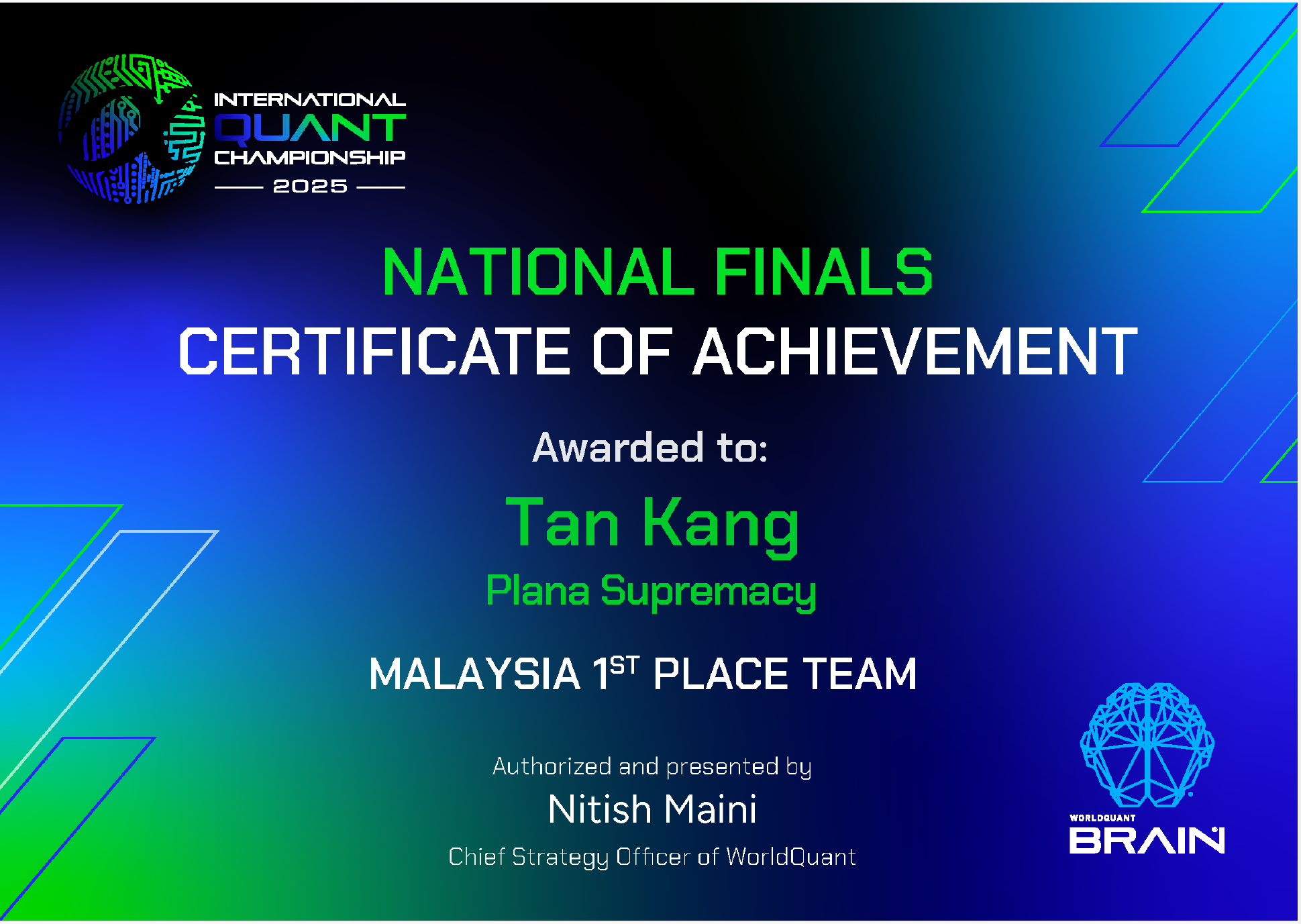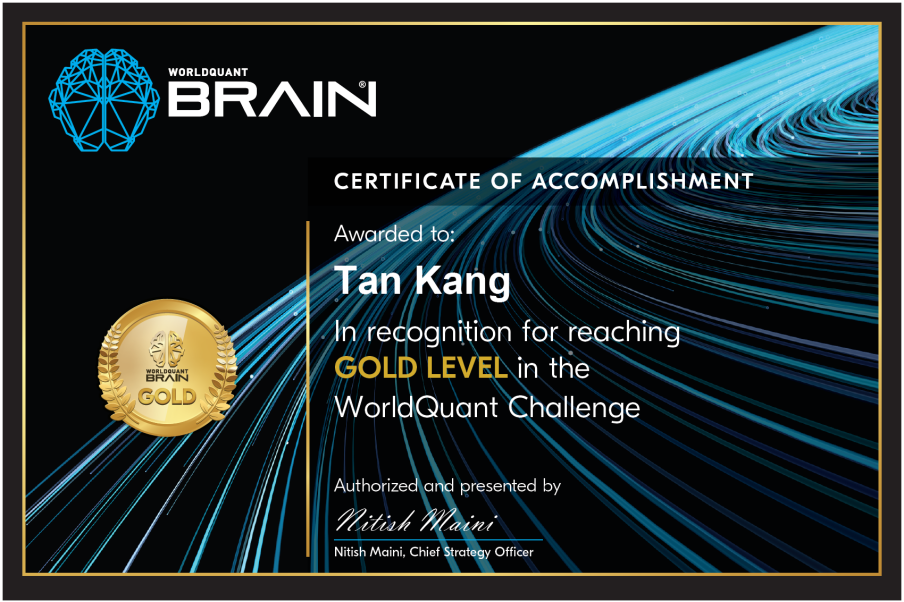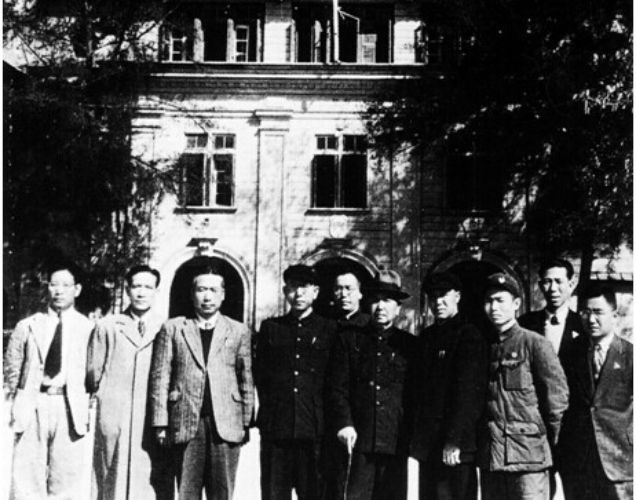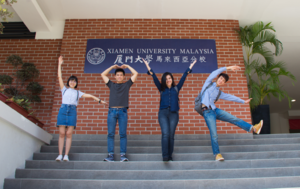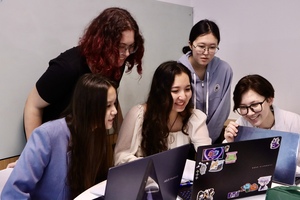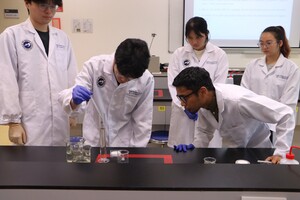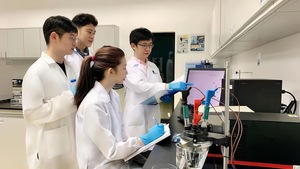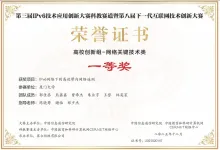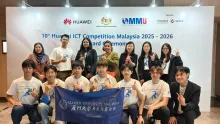XMUM Student Advances to Global Finals of International Quant Championship
XMUM Student Advances to Global Finals of International Quant Championship
Tan Kang, a first-year Robotics and Automation Engineering student at Xiamen University Malaysia (XMUM), has secured a place in the Global Finals of the 2025 International Quant Championship (IQC) as the only participant representing Malaysia.
Competing as a solo participant, he earned his position after outperforming other 1,200 Malaysian teams in the national round.
The competition's Global Finals, featuring 12 teams from around the world, will be held in Singapore from 28 to 30 September 2025. Tan Kang will compete against teams from institutions including Columbia University, the University of Oxford, Nanyang Technological University, Wuhan University, and Monash University.
Organized by WorldQuant, the IQC is a large-scale quantitative finance competition. This year's event attracted approximately 80,000 participants from 11,000 universities across 142 countries, who submitted over 263,000 algorithmic strategies ("alphas").
Tan Kang developed an interest in quantitative finance through university club activities. As a first-year engineering student, he had to quickly acquire skills outside his core curriculum - such as coding, financial modeling, and statistical analysis, while balancing his academic workload.
"The main challenge was competing alone against experienced teams, often comprising postgraduate researchers and doctoral candidates," Tan Kang said. "I had to manage all aspects of the project myself, from research and modeling to implementation."
In the Malaysian national championship, Tan Kang's main competitors were teams from the University of Malaya, Universiti Sains Malaysia, University of Nottingham Malaysia, Taylor's University, TARUMT, and others. By competing alone, he advanced to represent Malaysia at the Global Finals.
He attributes his success to a willingness to learn new topics quickly, though he acknowledges that his limited experience relative to other competitors was a disadvantage. Training workshops provided by the competition helped him develop AI-based market prediction models and improve his problem-solving skills.
Dr. Tan Jian Ding, his academic supervisor, noted: "Transitioning from engineering to quantitative finance requires strong independent learning skills. Tan Kang's ability to develop his own trading models - moving from using existing research to creating original algorithms - represents his most significant progress."
For the finals, Tan Kang aims to deliver a strong performance. "It's an honor to be the only finalist from Malaysia. My main goal for the Global Finals is to finish in the top three or higher worldwide."
"I hope to inspire more talents in time to come and to increase awareness and accessibility of this field within my country," he said.
